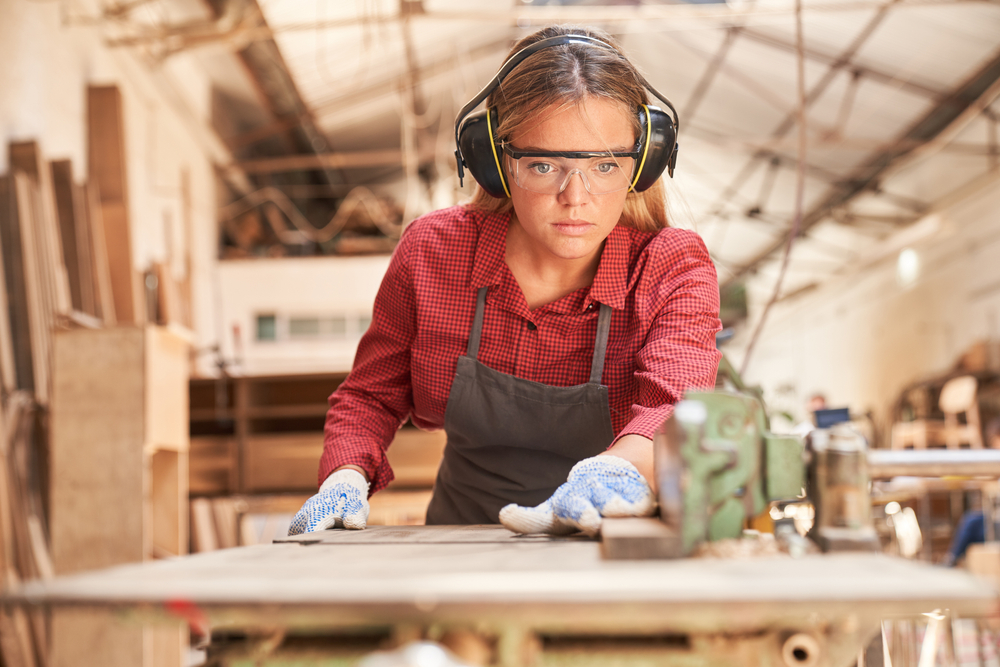
Whether you’re going to concerts, working, or doing some yard work, hearing protection is essential in keeping your ears safe from dangerous noise levels. However, you could be left exposed to potential risks if any one of a number of possible factors interferes with your hearing protection’s effectiveness. In order to understand and successfully maximize the advantages of your ear protection, it’s essential to understand these issues.
Common reasons why hearing protection falters
Even when you follow best practices, unforeseen challenges can arise. You keep away from overly loud situations as much as possible, use earplugs at concerts, and diligently use earmuffs at work. However, the efficiency of your hearing protection can be decreased by specific variables. Luckily, by acknowledging these common pitfalls, you can make educated adjustments to ensure your hearing is always well-protected.
1. Selecting the wrong hearing protection for the situation
Hearing protection isn’t one-size-fits-all, and picking the wrong type for a given environment can decrease its effectiveness.
Generally, hearing protection falls into two main categories:
- Earplugs: Small foam or rubber plugs that tuck tightly into the ear canal.
- Earmuffs: Larger devices that go over the entire ear, resembling headphones.
Each kind has its ideal use case:
- Earplugs are best suited for environments with continual noise levels, like factory floors or airplane cabins.
- Earmuffs are better for settings with intermittent noise, like a construction site where machinery starts and stops constantly.
Earmuffs are easier to deal with when there is a need to regularly put on and remove your hearing protection. Disposable earplugs, on the other hand, can leave you vulnerable to hearing damage because they can be easily lost. Picking the right hearing protection for your needs is the first step toward protecting your hearing effectively.
2. Individual anatomy impacts fit and effectiveness
Some devices will fit better than others depending on the size and shape of the person’s ears. Standard earplugs and earmuffs are often designed with average dimensions in mind, but your ear anatomy could require a more individualized solution.
- Smaller ear canals: If you have tight ear canals, standard-sized earplugs might not create an effective seal, reducing their noise-blocking capabilities.
- Larger ear structures: Earmuffs could be uncomfortable if your ears are larger than average creating gaps in the seal.
Ill-fitting hearing protection can lead to frustration and a temptation to discontinue their use entirely, putting your hearing in danger. If you spend significant time in loud settings, think about investing in custom-molded earplugs or professionally fitted earmuffs. Choosing to go with a more personalized approach will provide you with greater comfort and effectiveness, keeping your hearing safe in any scenario.
3. Ignoring regular maintenance and replacement
Like any piece of gear, hearing protection devices need upkeep to continue to be effective. Wear and tear, improper cleaning, and missing replacement schedules can all compromise their ability to protect your ears.
Here’s how to take care of your hearing protection:
- Replace Cushions: The pliability of earmuff cushions can decrease over time. In order to maintain a proper seal, replace the cushions when necessary.
- Clean Properly: Debris and earwax can build up on your hearing protection over time. In order to safely and effectively clean your earplugs or earmuffs, consult the manufacturer-recommended cleaning instructions.
- Inspect for Damage: Frequently check the elastic band on earmuffs. A loose or stretched band can reduce their snug fit, diminishing their noise-blocking capacity.
Disregarding these basic maintenance duties can render your hearing protection less effective or even useless. In order to ensure consistent and effective performance, and to extend their lifespan, it’s essential to keep these routine maintenance routines.
The advantage of a hearing specialist
Schedule an appointment with us for a consultation if you think that your ear protection may not be working. We can examine your present devices, suggest alternatives, and even provide custom solutions tailored to your specific requirements.
Safeguarding your hearing is a lifelong commitment, and it’s worth the effort to make sure you’re using the right tools for the job. You can safeguard and preserve your hearing for many years by addressing these common challenges.